I tried this glycerin hack to stop the mirror in my bathroom from fogging up – and it worked like magic
It instantly fixed one of my biggest pet peeves
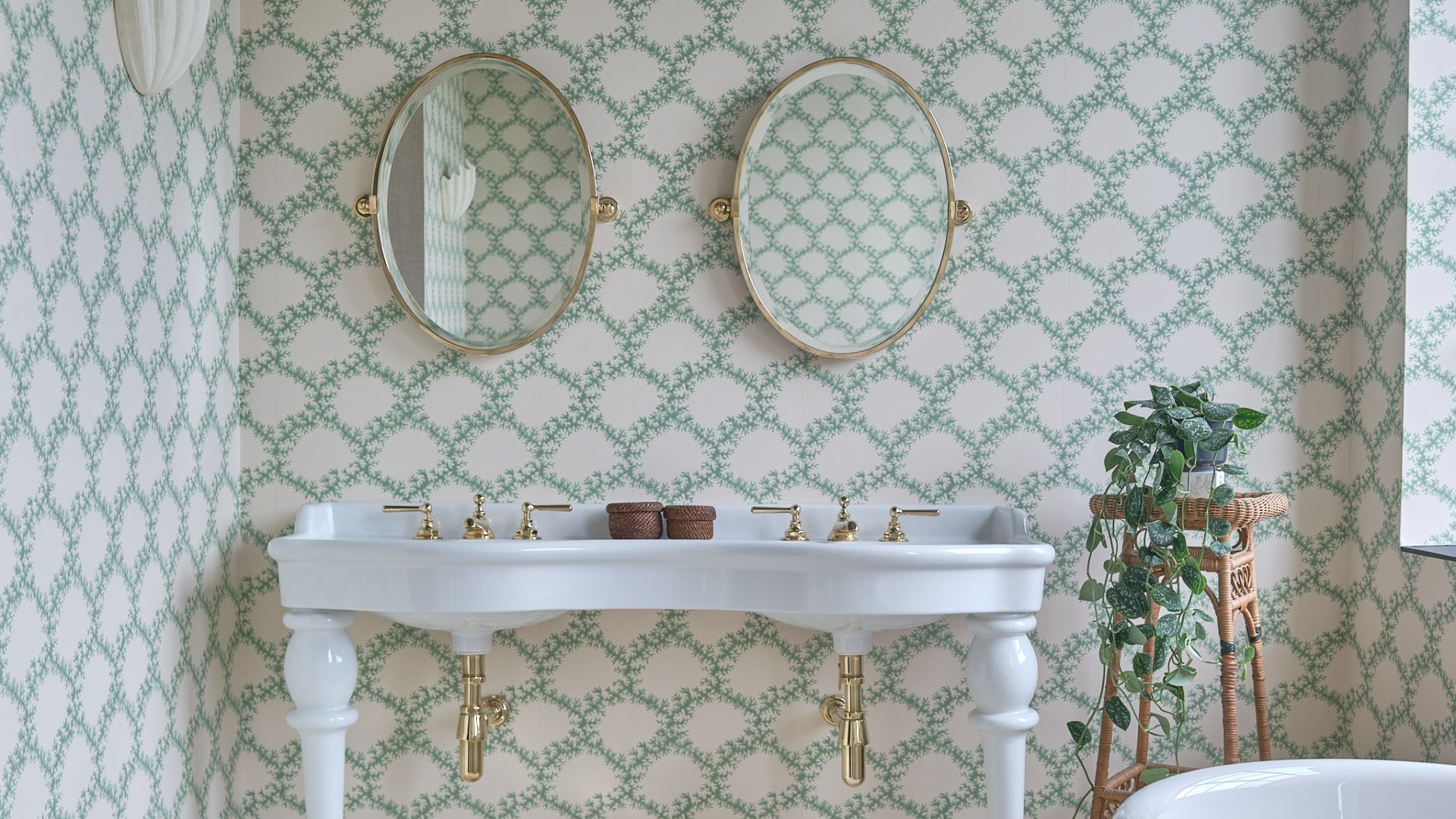

I love a hot shower, but they come with the irritating downside of my mirror fogging up, making applying my skincare afterward a nightmare. It is one of my biggest pet peeves, especially since my extractor fan broke.
When I heard that you could supposedly use glycerin to stop a mirror from fogging up, I had to give it a go. I was skeptical but willing to give it a try while waiting for my fan to be fixed.
So, imagine how amazed I was when this pantry staple instantly stopped condensation on a bathroom mirror for over a week – here’s how this strange hack works.
Using glycerin to stop a mirror from fogging up
There are several things you can clean with glycerin, and I had some leftovers from another hack (using glycerin for stain removal,) so I wasn’t too shocked at the idea of using it elsewhere in my home, but the trick seemed too good to be true.
Nevertheless, it worked to stop my bathroom mirror ideas from becoming useless after a short shower.
For this cleaning tip, you need:
- Liquid vegetable glycerin, available at Walmart.
- Half a cup of warm water.
- A receptacle for mixing. I used a clean glass measuring pitcher, also from Walmart.
- A microfiber cloth.
- A mirror cleaning spray. I use the Method Glass and Surface Cleaner, available at Amazon.
The steps
This is a super simple hack to incorporate into cleaning a bathroom, and it only took me four steps and less than five minutes.
- Start by cleaning the mirror using your glass cleaner to remove any smears, streaks, or dust. I use a microfiber cloth for this to avoid any mirror cleaning mistakes and scratches. If you are battling with cloth fibers on your mirrors, consider using a Damp Duster, available from Walmart, to polish the surface and remove debris.
- With the mirror clean, I made a DIY cleaning solution by mixing about one teaspoon of liquid glycerin into around half a cup of warm water. I eyeballed this, as there were no set recipes that I could find online, but it works just fine.
- With the solution thoroughly mixed, I dampened a clean microfiber cloth with the solution, squeezing it to remove the excess, before buffing it onto the glass. When I was testing this method out, I applied the solution to just one-half of my mirror to see how effectively it worked, but have since buffed my whole mirror with the solution.
- Once applied, let the mirror dry. Because the solution is water-based, the mirror may look a little streaky for a while. I let it dry completely before taking a shower and watching for the results.
The results
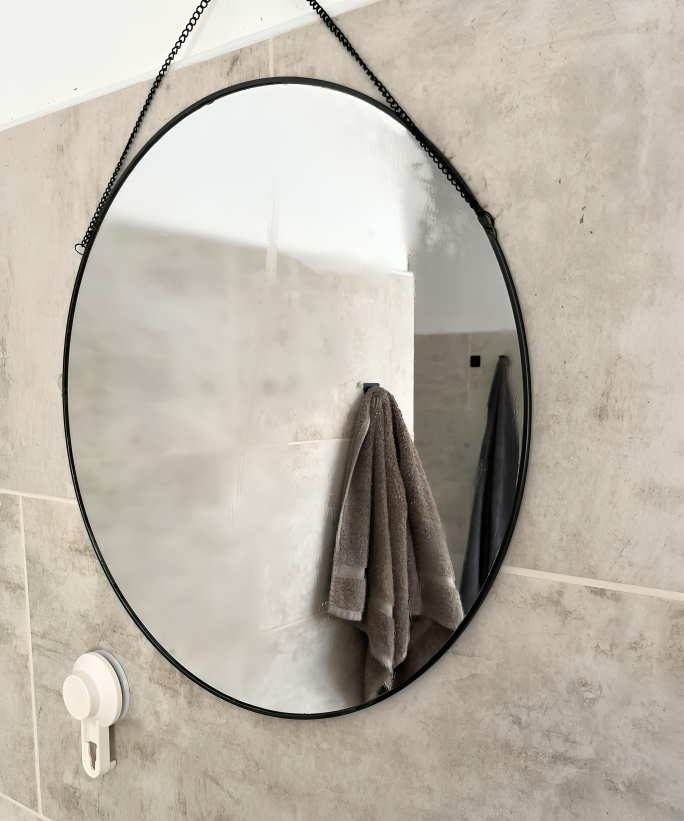
You can clearly see the side of the mirror I initially cleaned with the glycerin solution is not fogged up, while the other half is cloudy after a hot shower.
I was genuinely amazed to find that this glycerin solution for fogging mirrors worked. I was fully prepared to write an article on how you shouldn’t waste your time, but I stand very much corrected. Plus, it is made with all-natural ingredients, helping me to maintain my non-toxic home.
Much like cleaning mirrors with shaving foam, the glycerin solution coated the mirror seamlessly and provided a protective film coating that condensation droplets could not form on. It lasted about a week of daily showers before I started to notice it fogging up again, at which point I simply reapplied as part of my achievable cleaning routine.
I will certainly be using this trick regularly to keep my post-shower routine simple and far less frustrating.
What to shop
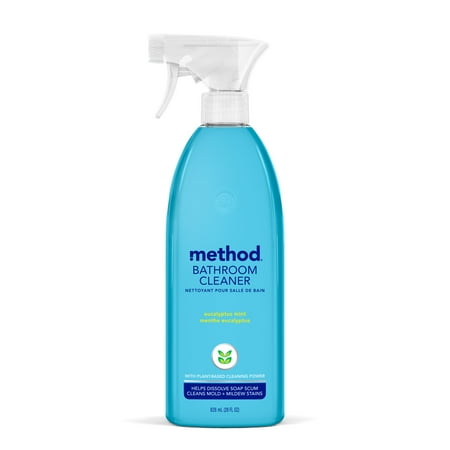
Method's bathroom cleaner breaks down grease and grime without the strong smell of chemicals lingering afterwards. They are a personal fvorite for freshening up the space at the end of each week
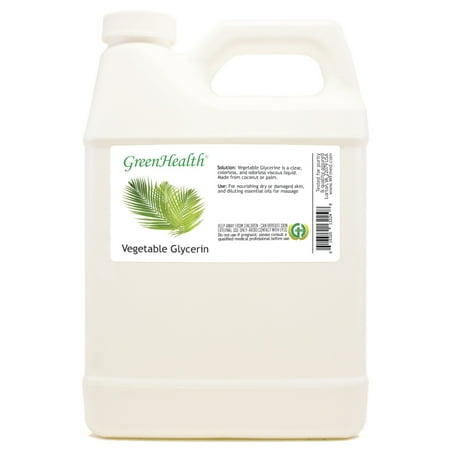
With so many uses around the home, vegetable glycerin is a worthy addition to your cleaning cabinet and pantry. Derived from plants, it is a natural and eco-friendly ingredient.
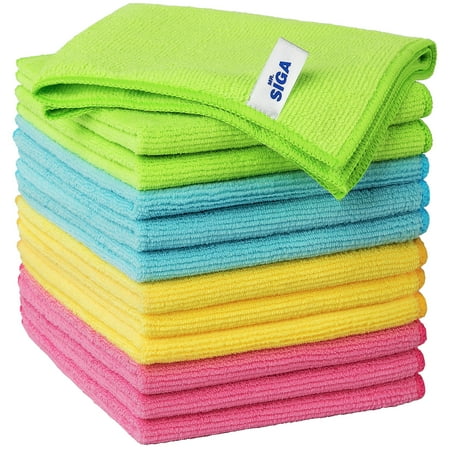
Microfiber cloths are perfect for mirrors as they are super soft, preventing scratches and streaking. They are also reusable, reducing paper towel waste and saving you money.
FAQs
Why do mirrors become foggy?
Mirrors become foggy when warm moisture hits a cold surface, such as mirrors and tiles. This moisture instantly cools, forming small water droplets and ‘fogginess’. Coating a mirror in a thin, anti-fog film can prevent water from clinging to the mirror, reducing fogging, as can using heated mirrors.
There are several other things people with clean bathrooms always do that you can learn from for an easier-to-use space, too.
Sign up to the Homes & Gardens newsletter
Design expertise in your inbox – from inspiring decorating ideas and beautiful celebrity homes to practical gardening advice and shopping round-ups.

Chiana has been at Homes & Gardens for two years and is our resident 'queen' of non-toxic living. She spends most of her time producing content for the Solved section of the website, helping readers get the most out of their homes through clever decluttering, cleaning, and tidying tips. She was named one of Fixr's top home improvement journalists in 2024.
You must confirm your public display name before commenting
Please logout and then login again, you will then be prompted to enter your display name.
-
 7 habits every good plant parent has, according to houseplant experts – number 3 will surprise you most
7 habits every good plant parent has, according to houseplant experts – number 3 will surprise you mostWatch your houseplants thrive after you build these tasks into your routine
By Tenielle Jordison
-
 What the unexpected fashion trick the 'Sandwich Method' taught me about decorating with color in my home
What the unexpected fashion trick the 'Sandwich Method' taught me about decorating with color in my homeI took a cue from my wardrobe and matched my ceiling to my skirtings – here's why it's my new favorite color trick
By Charlotte Olby
-
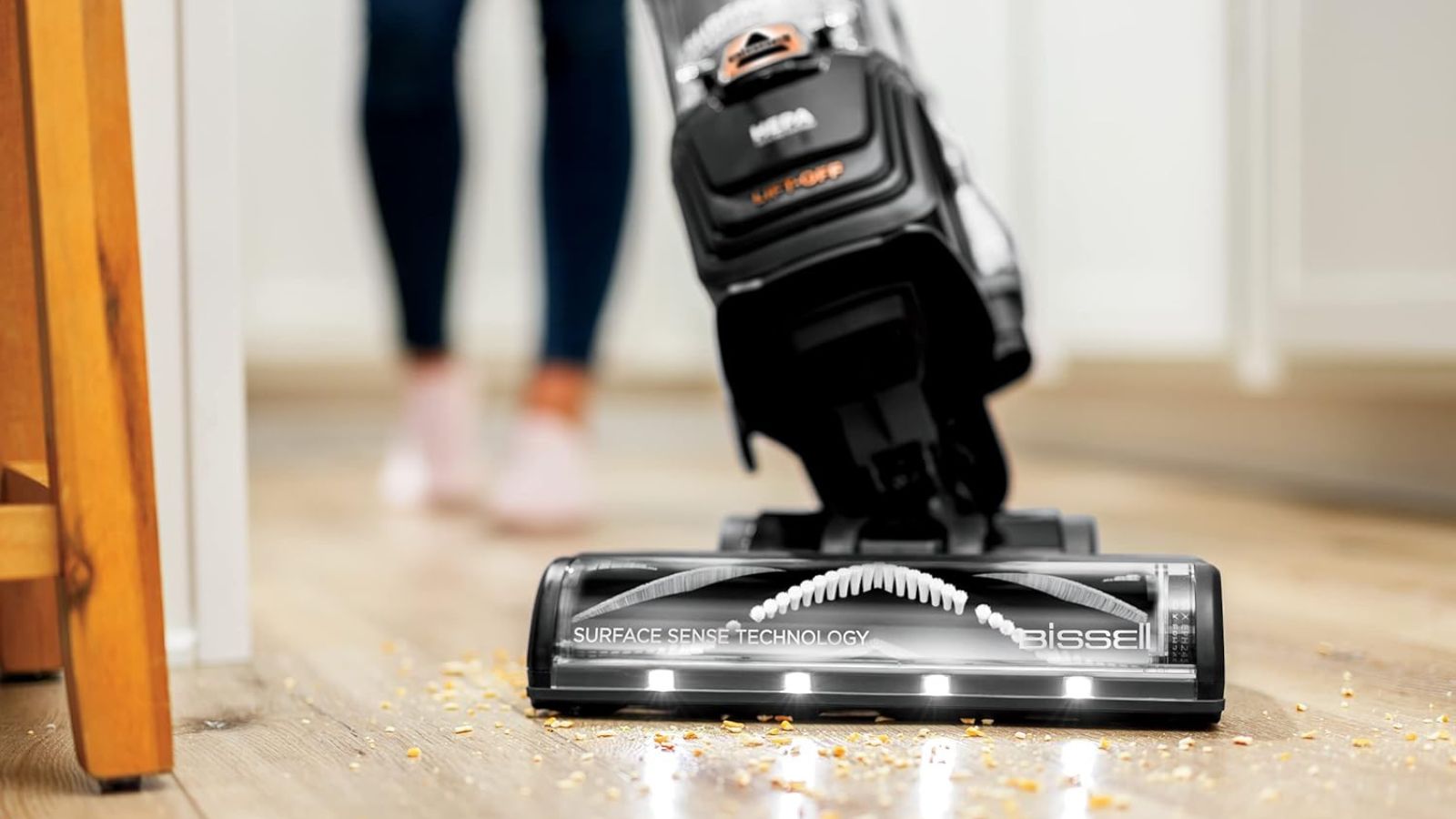 I tested the Bissell SurfaceSense Allergen Pet Lift-Off upright vacuum – and love how impressively it cleans every surface at this price
I tested the Bissell SurfaceSense Allergen Pet Lift-Off upright vacuum – and love how impressively it cleans every surface at this priceAfter two weeks of vacuuming and testing, I'm recommending this budget-friendly vacuum to everyone
By Camryn Rabideau
-
 Using my Iranian grandma's fridge trick keeps my crisper drawer pristine – and fresh produce lasts twice as long
Using my Iranian grandma's fridge trick keeps my crisper drawer pristine – and fresh produce lasts twice as longIt's amazing how a simple tweak can make such a big difference
By Punteha van Terheyden
-
 Engineers reveal the 4 common faults they're always fixing in Shark vacuums – and how you can prevent them from happening
Engineers reveal the 4 common faults they're always fixing in Shark vacuums – and how you can prevent them from happeningThese checks will restore your Shark vacuum to its former glory
By Dan Fauzi
-
 5 things professional cleaners always do to overcome a cleaning roadblock – they're surefire ways to feel 'motivated and clear-headed' experts say
5 things professional cleaners always do to overcome a cleaning roadblock – they're surefire ways to feel 'motivated and clear-headed' experts sayGet your cleaning schedule back on track
By Ottilie Blackhall
-
 Dyson V15 Detect vs Dyson V12 Detect Slim – which is right for your home?
Dyson V15 Detect vs Dyson V12 Detect Slim – which is right for your home?I've spent more than 200 hours testing vacuum cleaners and these two cordless Dysons are my personal favorites
By Dan Fauzi
-
 I've spent over 200 hours testing vacuums and swear by my two Dysons – this is how I properly clean a Dyson vacuum filter for longer-lasting appliances
I've spent over 200 hours testing vacuums and swear by my two Dysons – this is how I properly clean a Dyson vacuum filter for longer-lasting appliancesYour Dyson vacuum will last much longer and clean at its best
By Dan Fauzi
-
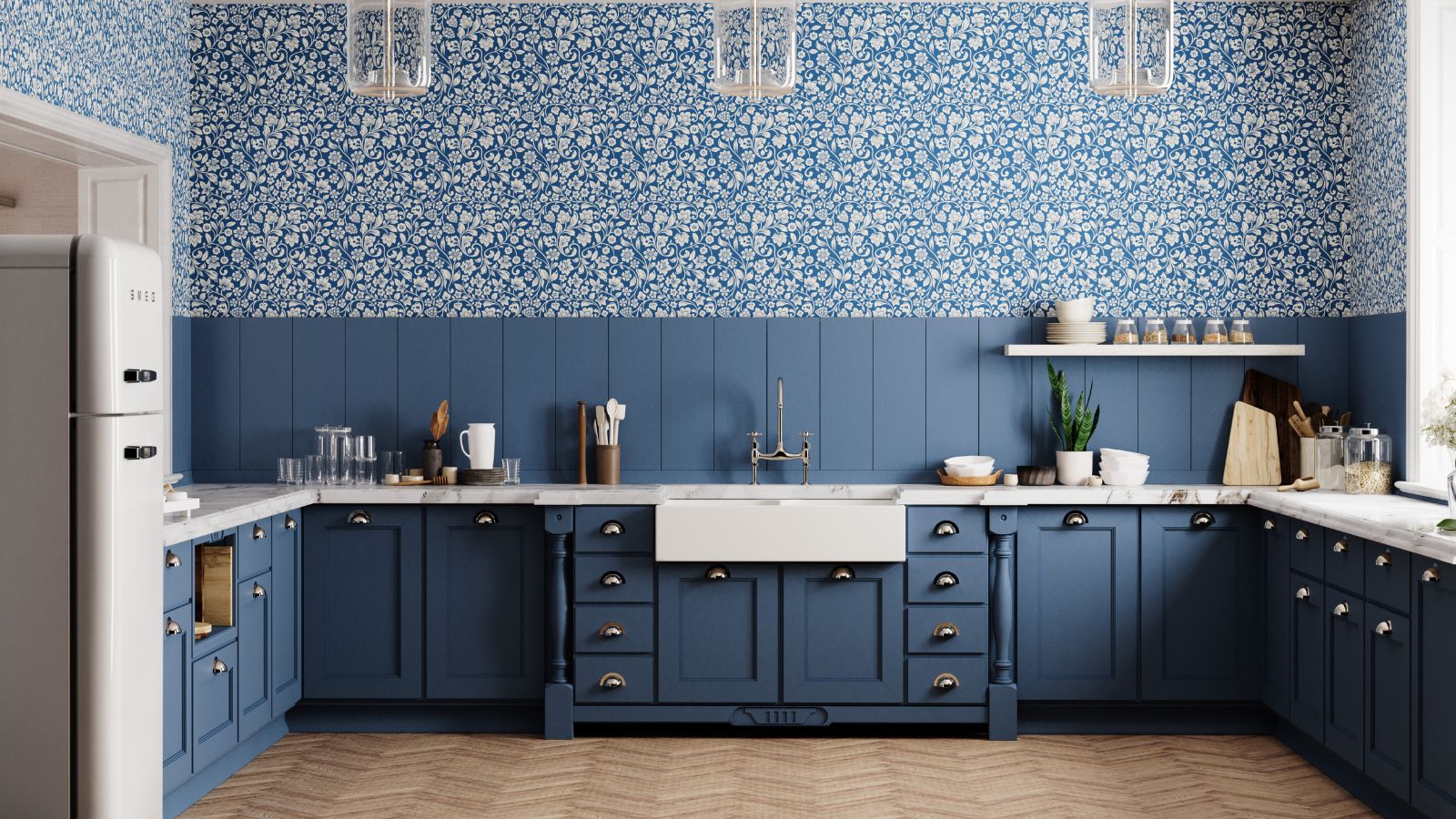 Do cleaning products expire? Professional cleaners warn time could make them ‘less effective, and in some cases, irritating to use’
Do cleaning products expire? Professional cleaners warn time could make them ‘less effective, and in some cases, irritating to use’For the best results, it pays to stay on top of the timeline of your cleaning products
By Chiana Dickson
-
 How to clean a patio – 6 different methods, and when you must use a chemical cleaning agent
How to clean a patio – 6 different methods, and when you must use a chemical cleaning agentFrom manual scrubbing, natural solutions or calling in the pros, industry experts reveal the benefits and considerations of each method
By Andy van Terheyden